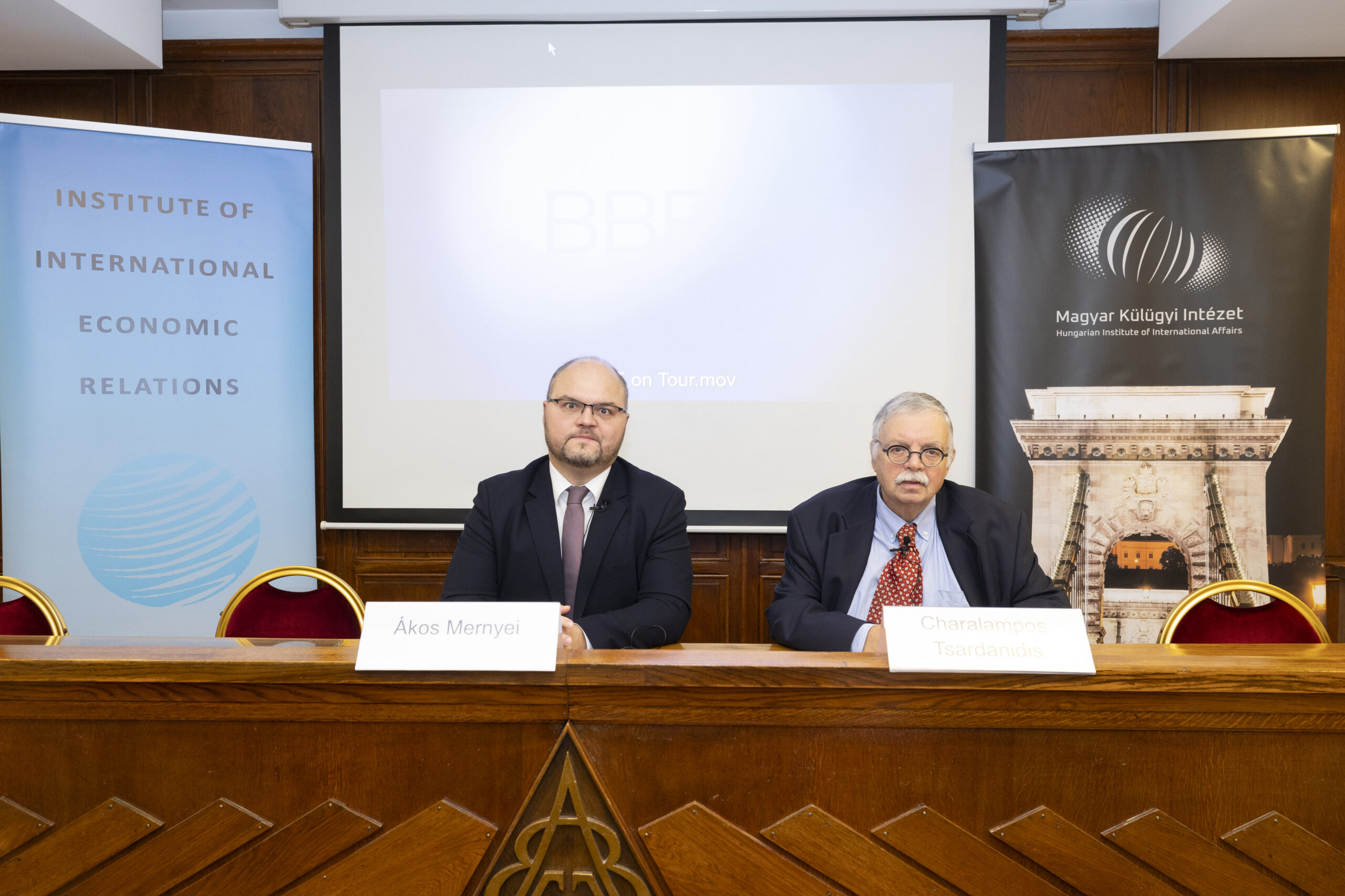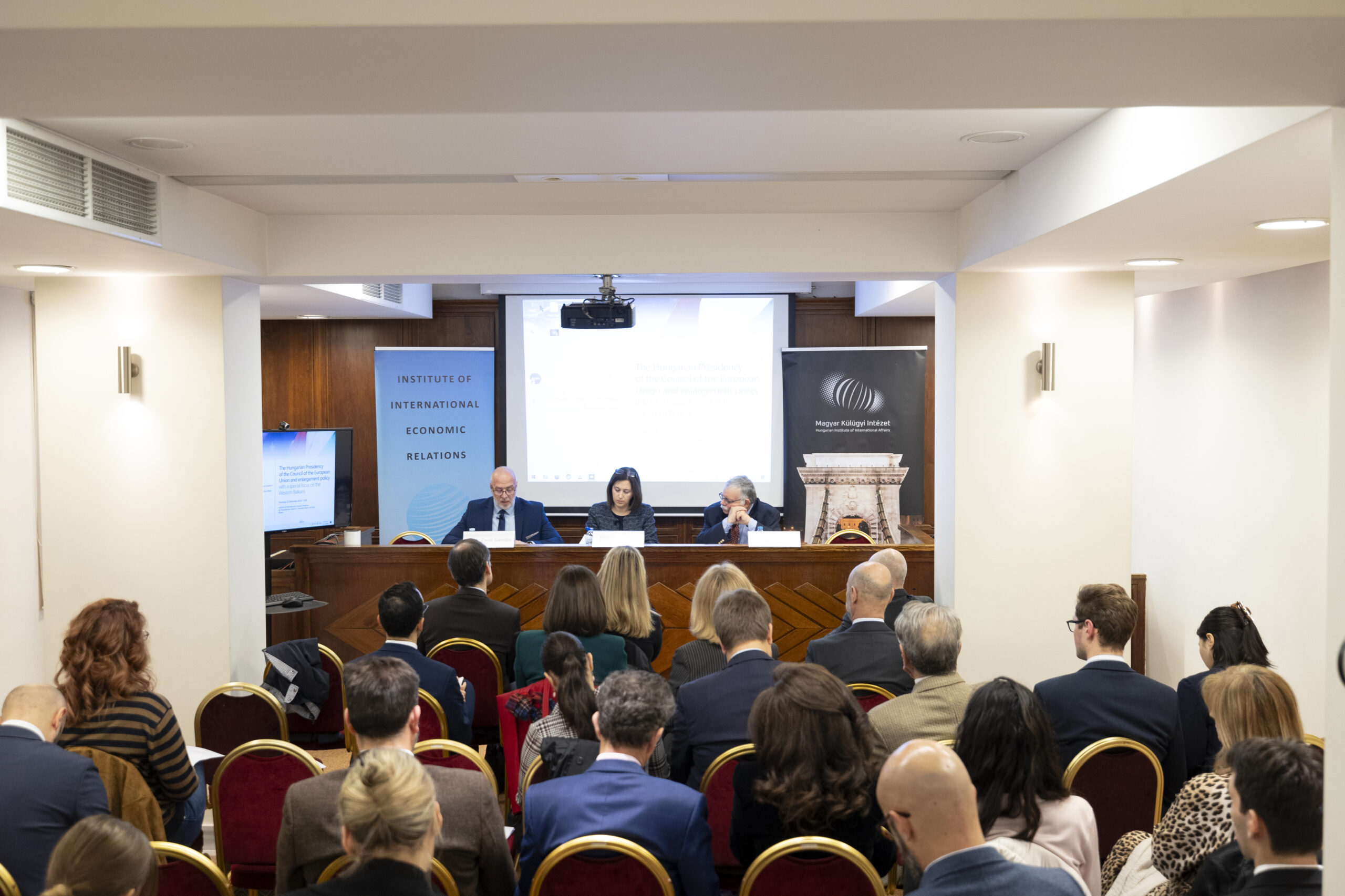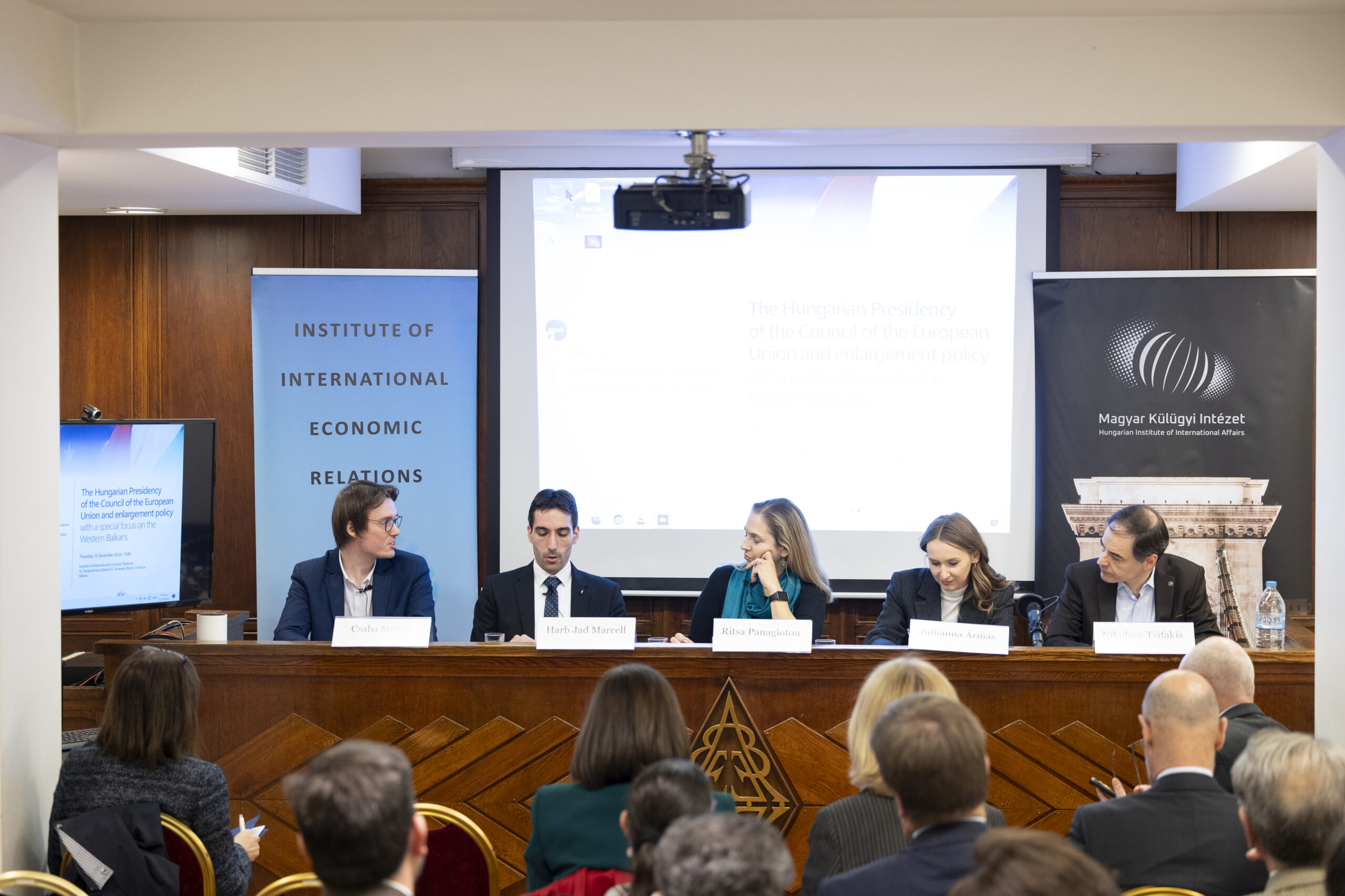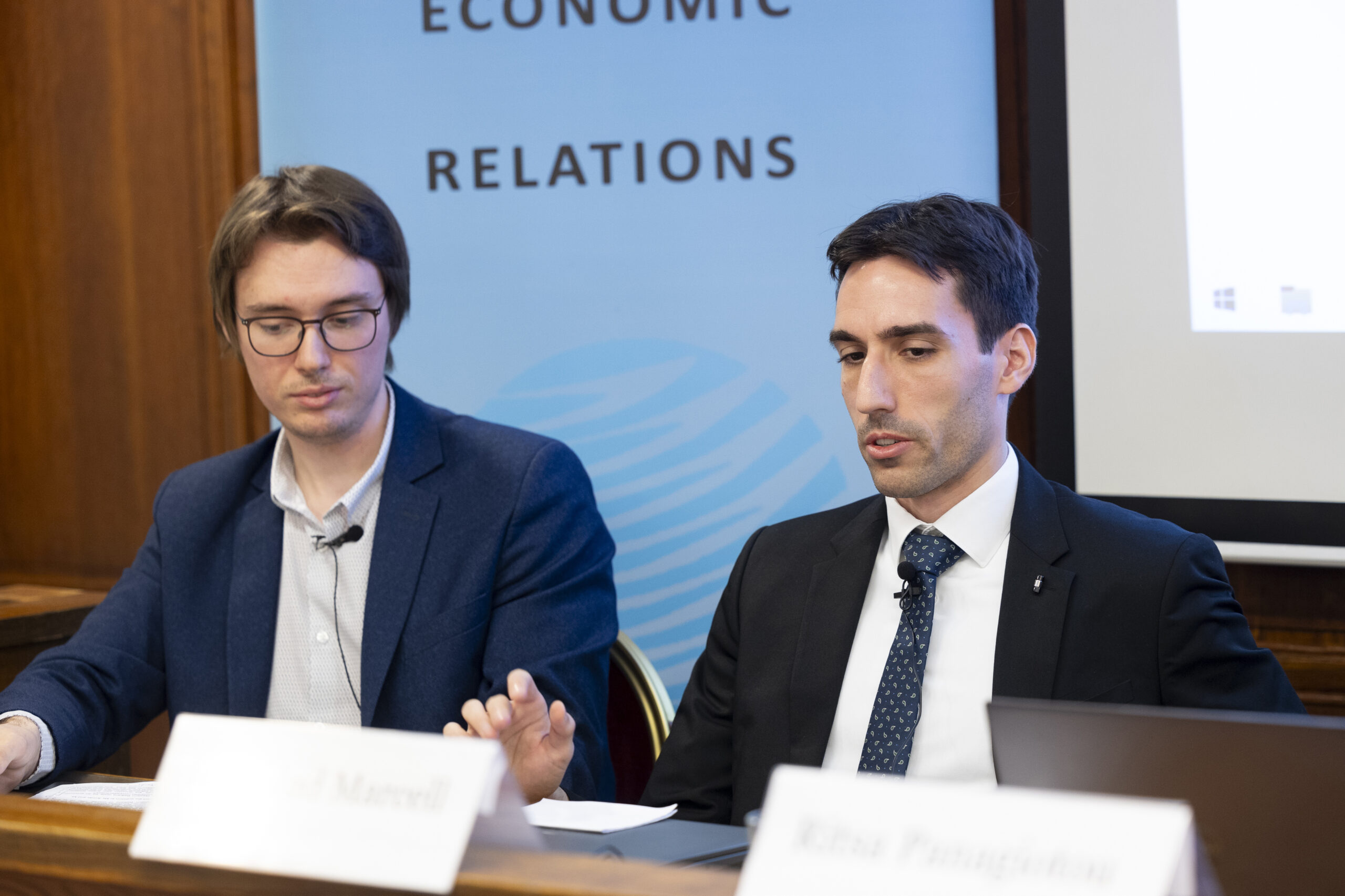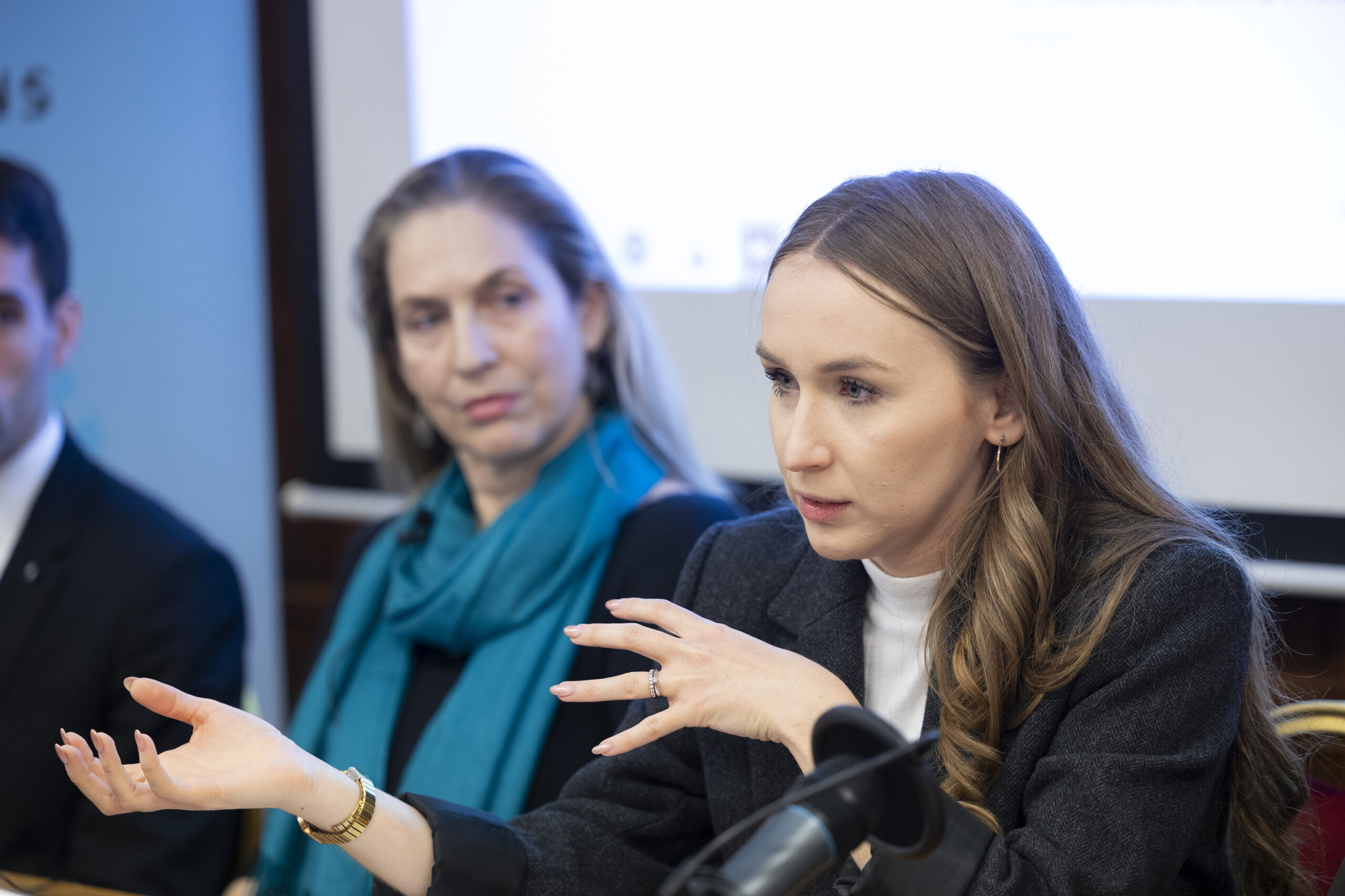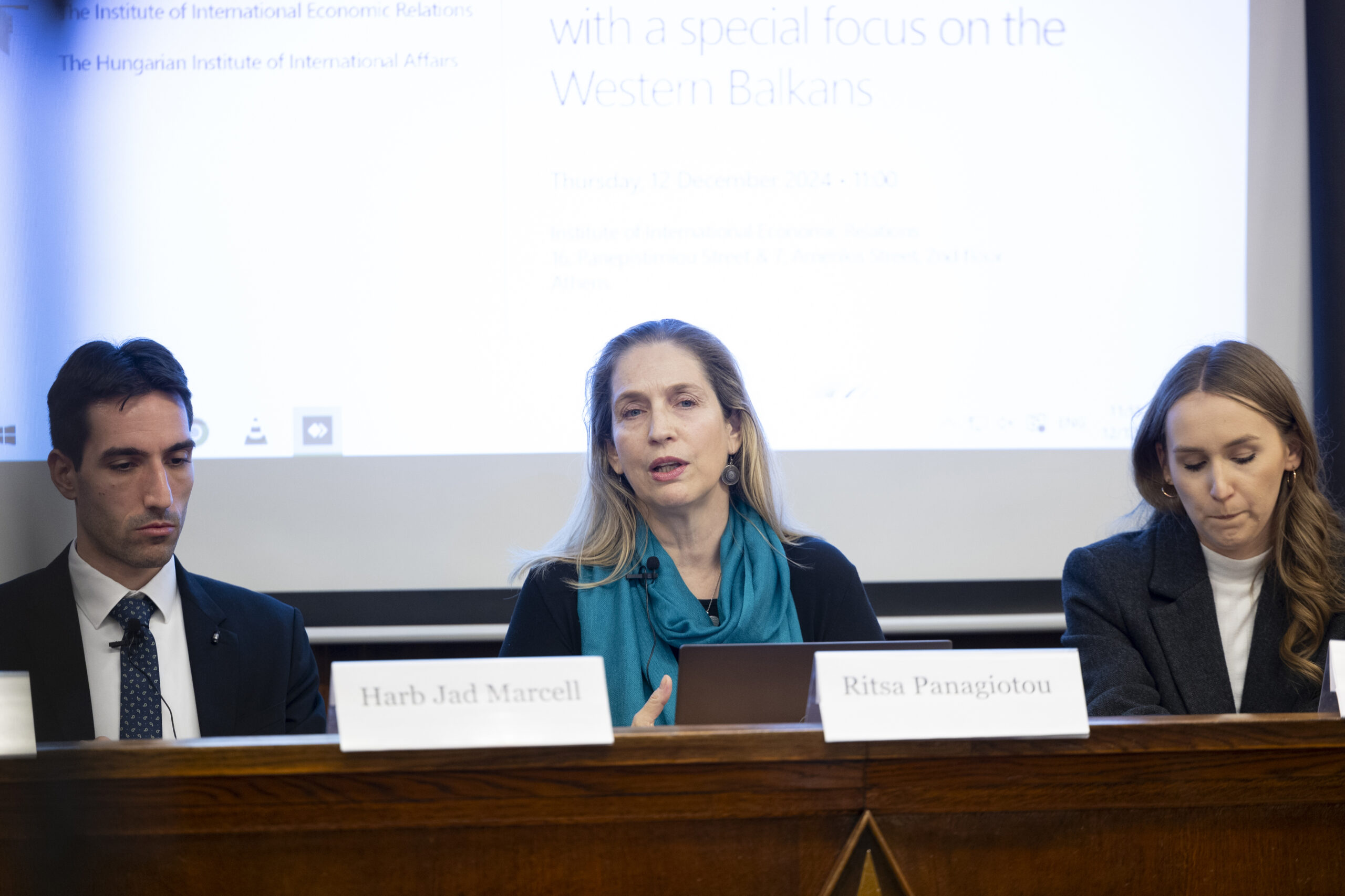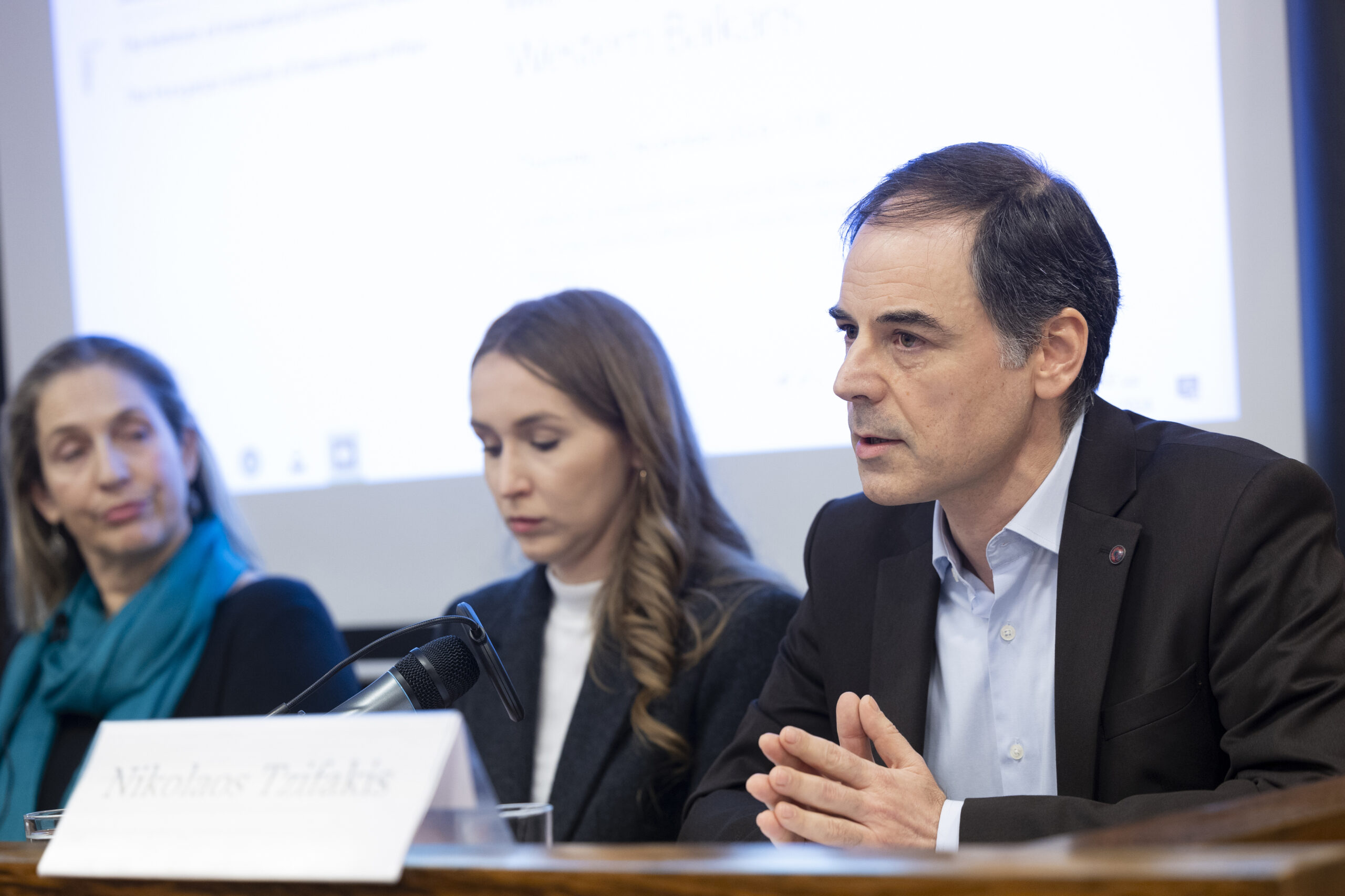The BBF on Tour 2.0 in Athens once again hosted a full house conference; on 12 December, the Hungarian Institute of International Affairs (HIIA) organised a joint event with the Greek Institute of International Economic Relations (IDOS) think tank. The conference, entitled “The Hungarian EU Presidency of the Council of the European Union and enlargement policy with a special focus on the Western Balkans”, focused on the priorities and achievements of the Hungarian EU Presidency and enlargement policy with a special focus on the integration of the Western Balkans. The event provided an opportunity for HIIA to present both the two priority areas of Hungarian foreign policy and thus the research areas of the Institute; enlargement in the Western Balkans and the Hungarian perspective on the European Union – accordingly, the Budapest Balkans Forum brand and the volume related to the EU Presidency were promoted too.
The welcoming speech was delivered by Charalampos Tsardanidis, Director of IDOS, who stressed that enlargement is in the common interest of Hungary and Greece, and by Ákos Mernyei, Advisor to the President of HIIA, who presented the objectives of the Budapest Balkans Forum and BBF on Tour and the priorities of the Hungarian EU Presidency. The first keynote speech was held by Zsolt Sándor, Hungary’s Ambassador to Athens, who presented the Hungarian interests behind the European integration of the Western Balkans, highlighting the successes of the Hungarian EU Presidency in this field. Then, Eleni Goulousi, Acting Director General for EU Affairs at the Hellenic Ministry of Foreign Affairs continued the keynote speeches, presenting the Greek position on the accession of the Western Balkan countries, underlining that the internal reform of the EU and the integration of the Western Balkan countries should go hand in hand.
The speeches were followed by a panel discussion on “Enlargement and Western Balkans”, with the participation of Julianna Ármás and Jad Marcell Harb, Research Fellows of HIIA, Ritsa Panagiotou, Senior Research Fellow at the Centre of Planning and Economic Research, and Nikolaos Tzifakis, Jean Monnet Chair in “EU Foreign Policy and the Western Balkans”, Professor of International Relations at the Department of Political Science and International Relations of the University of the Peloponnese, moderated by Csaba Stefán. The panel started with a debate on the most pressing challenges facing the EU and the related priorities of the Hungarian EU Presidency, highlighting the structural problems of competitiveness, defence policy, demography and migration, as well as the dilemmas of enlargement and internal reform; underlining the potential role of the Western Balkans in addressing these challenges. Julianna Ármás argued that the integration of the Western Balkans into the EU will reveal further challenges to be tackled, and that internal EU unity is essential for the enlargement of the Western Balkans. Ritsa Panagiotou spoke about the stabilising role of EU integration in the region, pointing out that EU membership is still an important foreign policy tool for the EU. Nikolaos Tzifakis argued that the EU should not reward the erosion of democracy and disregard for EU norms but should act against regimes with authoritarian and irredentist tendencies by suspending the accession process or even imposing sanctions.
The discussion then looked at the economic potential of the Western Balkans, including the region’s key role in terms of logistics through transport routes, the potential absorption market of the Western Balkans, the energy sources in the Balkans and the investment and trade opportunities. The (untapped) economic prospects of the SEE region could bring positive benefits for both the EU and the Western Balkan countries, which are facing several internal economic and social problems. The issue also raised the problem of the growing influence of external actors in the Western Balkans. Experts agreed that this is particularly detrimental to the EU’s strategic interests, that the unconditional capital provided by external actors such as China and Russia undermines the EU’s strategic vision and pushes the Western Balkan countries further away from meeting the criteria for EU membership. A further challenge is that, despite the huge amount of financial support provided to the Western Balkans, the EU is not able to “market” itself properly, and thus does not create a positive image of the Community in the societies of the region, equal to the scale of its contribution. The last question concerned the possible greater autonomy of the EU’s defence policy. The panellists believed creating mechanisms in parallel with NATO would be redundant and financially unrealistic, but an increase in the defence capabilities of EU countries is certainly a desirable goal, especially in the light of Donald Trump’s return.


